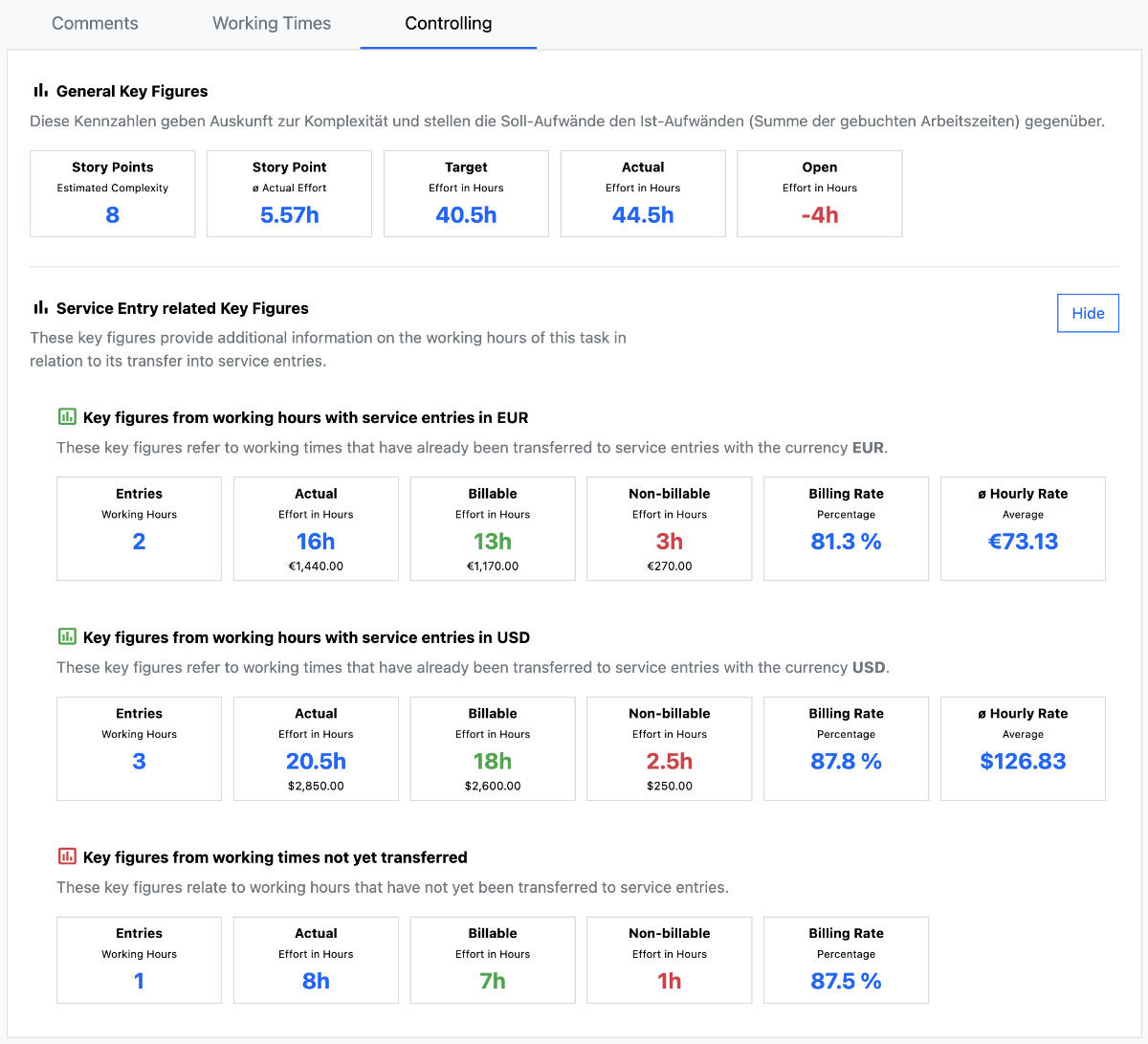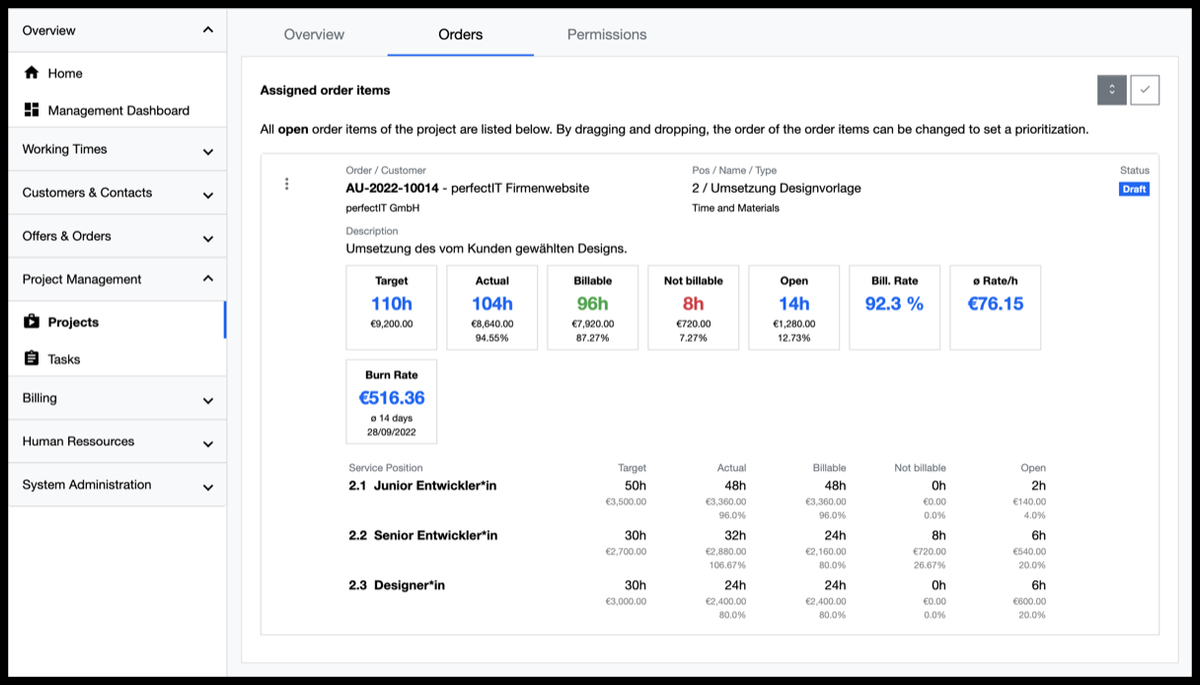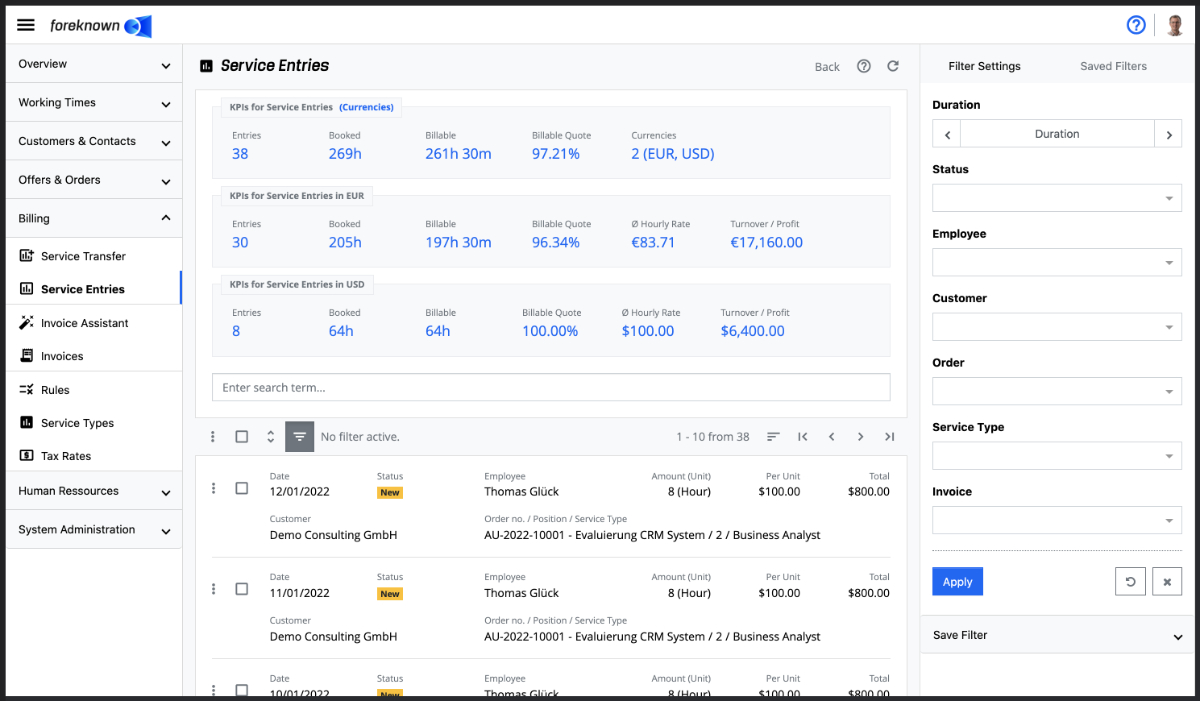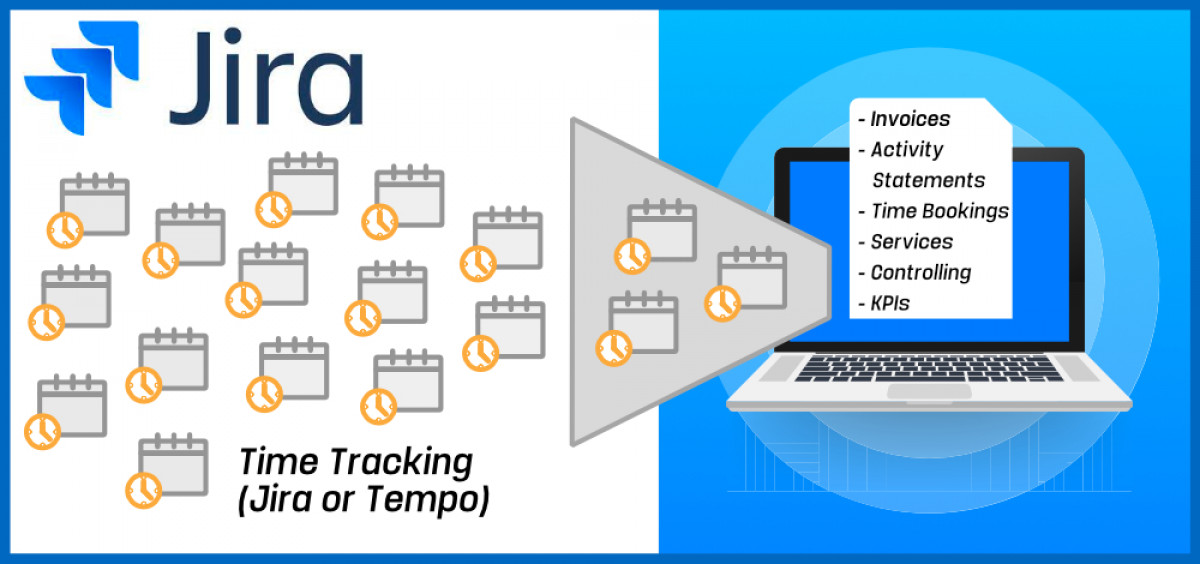When implementing agile projects, many companies rely on the task and project management solution Jira from the company Atlassian. With the help of this software, tasks are created, prioritized and processed in the form of sprints (Scrum) or according to the Kanban principle. In the process, all team members post their working times (as work logs or tempo working times) to the respective tasks during implementation.
But now one is faced with the challenge of generating billable services with a monetary equivalent value from these working time bookings in order to create activity records and invoices on the one hand, but also to determine important key figures such as an invoicing rates, a spend/left budget and the project progress on the other.
To overcome this challenge as easily as possible, we have developed a Jira plugin that allows direct synchronization of all important Jira data with foreknown.
foreknown Plugin for Jira
By developing the Jira plugin, we achieve a deep integration with the Jira user interface. After connecting both systems by simply exchanging an "App ID", project managers can easily synchronize their Jira projects to foreknown with just one button click. In doing so, the projects, all related tasks with work logs and comments, and all relevant users are created in foreknown.
In addition, other important properties of Jira tasks are generated as labels to foreknown tasks and working times:
- All labels of Jira tasks are taken over 1:1.
- Assignments to Sprints (Sprint:...)
- Assignments to releases (Release:...)
- Priorities (Priority:...)
- Task types (Type:Epic, Type:Task, Type:Sub-Task, ...)
- Relationships to Epics (Epic:...) and Tasks (Task:...)
These labels can then be used for a wide variety of purposes:
- In the rule definitions to (semi-) automatically generate service entries from work logs in foreknown.
- For filtering in the service entry and task list dialogs to query KPIs for services and projects.
Invoicing for Jira
The creation of invoices and associated activity statements becomes child's play thanks to the synchronization of Jira data to foreknown. All billable service entries for a defined period are offered in the invoice wizard, consolidated into invoice positions and inserted into an invoice.
Subsequently, all service entries that have been included in an invoice can be exported as an "activity report" via an individually designable Excel spreadsheet.
Controlling for Jira
By synchronizing the above data from Jira, foreknown provides many controlling capabilities for projects managed in Jira.
Task Controlling
Due to the large amount of task-related data, many useful KPIs can be queried very easily in foreknown, such as target/actual efforts, story points, billable and non-billable working hours, billing rate, ø hourly rate in the context of an epic, a user story, a release, a sprint, and many more. And if required, these KPIs can also be queried directly for each individual task.

See also "Micro-Controlling - Does it make sense?"
Order Controlling
The rule-based, automated transfer of work logs of Jira tasks into billable services also provides an assignment to individual order items and service types. Thus, even at the level of an order and all order items with synchronization, many important KPIs are automatically provided to easily evaluate the progress and efficiency of an order.

See also "Controlling Orders using KPIs"
Project Controlling
In addition, by assigning order positions to projects, all order-related KPIs can also be queried in the context of a project.

See also "Implement Orders transparently for all involved Parties"
Service-based Controlling
All service entries resulting from Jira work logs can be easily used to create many important KPIs. Using the filter capabilities these KPIs can be retrieved in many different contexts.

See also "Easily query service-based Key Figures"
Conclusion
The integration of foreknown into Jira has created a conceivably simple way to use both the accounting of working hours and the provision of many KPIs. This significantly simplifies many processes, minimizes potential sources of failure and increases transparency for the progress and efficiency of projects, orders and employees.

